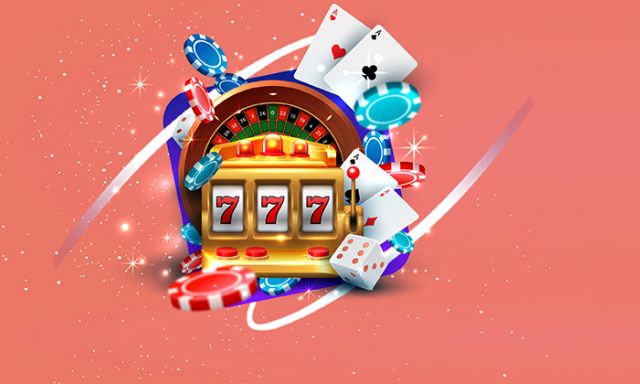Roulette, blackjack, bingo - there are many options on an online casino. But perhaps the most popular of them all are the slot machines. With a vast number of developers and thousands of titles, they provide fantastic choice and variety for players.
Online slots have evolved from their physical counterparts. Most people remember the cherries, oranges and plums on the old-fashioned fruit machines in bars and pubs; online slots machines have taken this idea and just made it all a little bit more sexy.
There are now more paylines, symbols, and exciting themes on slot machines. There's nothing wrong with watching fruit, bells and bars whizzing around - but when you've got the option to play with zombies, dragons, Egyptian symbols, dogs, or anything else you can think of, why wouldn't you want to?!
There are online slots with virtually every theme you can think of. And although each game has its own specific prizes, bonuses and features, they all work in the same fundamental way.
If you've ever asked yourself, "how do slot machines work?" - you'll find the answer below.
How Do Casino Slots Work?
The question of “how do slots work?” has changed over time, especially with the original one-armed bandit style slot machines. The early slot machines were mechanical, but this changed a long time ago. Casino owners discovered that the slots could be manipulated with magnets to guarantee continuous large payouts.
As a result, the random number generator (RNG) was created, and this concept is what's used in online play. It wouldn't be physically possible for reels to spin mechanically when playing on digital reels, so the principles of the RNG are now used online and land-based casinos.
An RNG generates numbers continuously, at incredible speeds. This sequence of numbers determines which symbols will land when you spin the reels to play online. Every number correlates to a symbol, and the constant, break-neck speed of the number generation ensures that every spin is fair and completely random.
This is why there's no such thing as a machine that's "due" for a win because every single spin has the same equal chance of producing a winning sequence.
Providing you're at a casino that is properly licensed and regulated; you can trust that the RNG is fair. This is because they are checked and monitored by independent third parties to ensure the results being produced are genuinely random.
RTP and Volatility
The RNG is fundamental to how slot machines work, but that doesn't mean that every slot has the same outcome. There are two different factors that affect how a slot machine works and how often it pays out.
The Return to Player - RTP - is a calculation that tells you how much a slot pays out on average. The RTP is worked out based on a very long, extended period of play and is intended to provide a guide to the general returns from a game. A player's actual experience may be higher or lower than the advertised RTP.
Every RTP is expressed as a percentage; a good slot machine will have an RTP of 95-96% or more. An RTP of 95% means that for every £100 you bet, you will get £95 back on average.
This might sound like a terrible idea because betting is about trying to WIN money, right? Don't forget that we explained the RTP is an average and is just an indication of how much you are likely to receive as a payout. You might play and win big with your first spin, giving you an RTP of 300% or more!
But RTP doesn't tell the full story. The RTP might be very high, but if the game only tends to pay out large amounts infrequently, you might have long, dry periods without a win. On the flip side, you might also have a game that rarely pays out the big prizes but rewards players with a very frequent stream of smaller payouts.
The frequency and size of the slot payouts are known as the volatility or variance. High volatility means that the slot pays out high prizes infrequently, while low volatility means lots of small prizes which are paid regularly.








